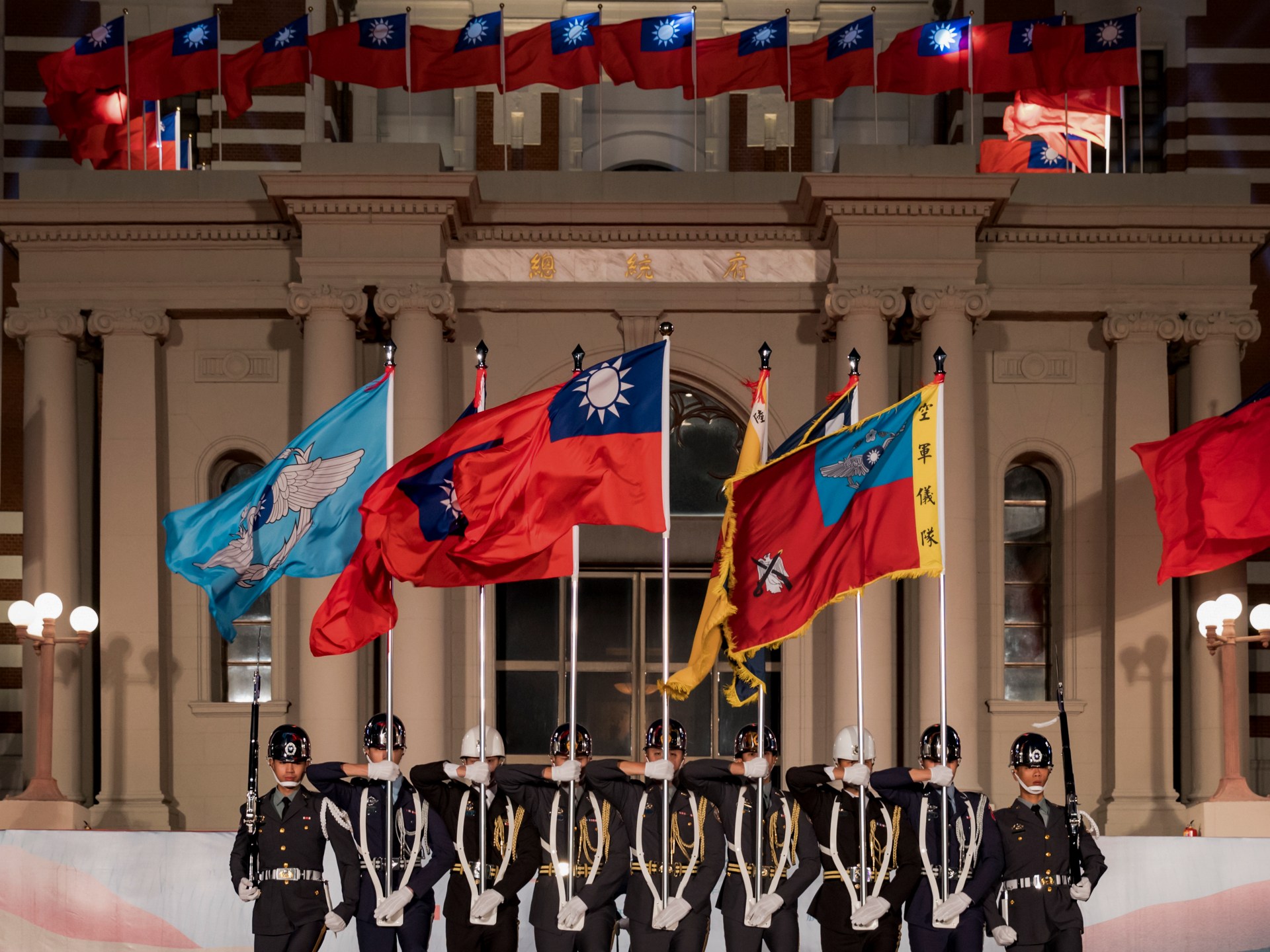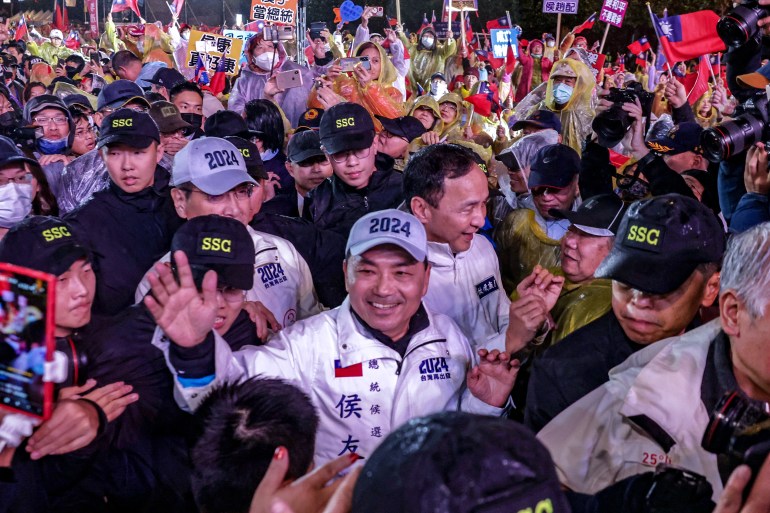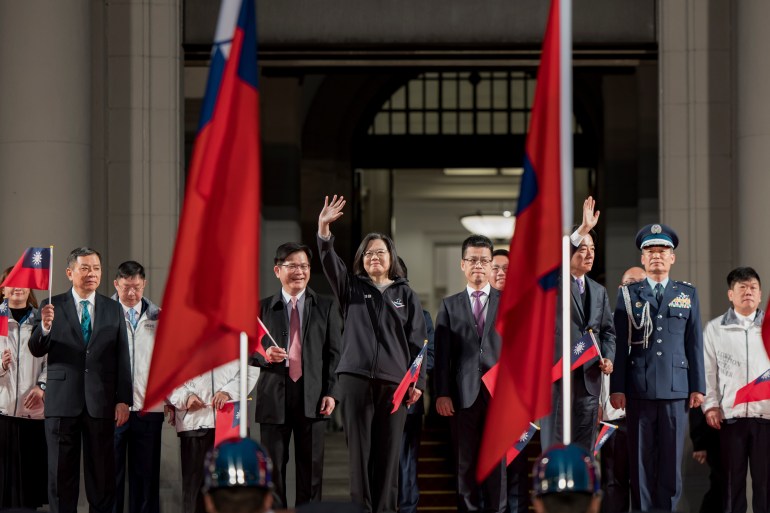
Last month, Joe Biden and Xi Jinping strolled through the lush gardens of a large California mansion and had a candid, intimate conversation.
It was hers first in-person summit in a year And the Chinese president was blunt – Taiwan, Xi told his US counterpart, was the most important and dangerous issue in the two countries’ fractured relations.
Beijing’s policies toward the self-governing island it claims will be in the spotlight again when voters in Taiwan go to the polls on Jan. 13 to elect a new president and parliament, and the United States will be watching closely .
William Lai Ching-te, the incumbent vice president and candidate of the ruling Democratic Progressive Party (DPP), is currently expected to emerge as the winner.
That outcome would likely anger Beijing, which portrays Lai as a “separatist” seeking independence, and create ongoing tensions in the narrow strait separating the island from China.
“Washington is well prepared to deal with whatever decision the Taiwanese electorate makes, but there will certainly be different opportunities and challenges depending on the election results,” said Rorry Daniels, executive director of the Asia Society Policy Institute. told Al Jazeera, adding that the US would consider strategies for “appropriate political signals” to deter any military response from China.
Beijing has increased pressure on Taiwan since voters first elected the DPP’s Tsai Ing-wen as president in 2016, cutting off all official dialogue, conducting military activities around the island and encouraging Taipei’s few remaining formal diplomatic allies to do so has Shift recognition to Beijing.
However, the United States, which has official relations with China, is Taiwan’s main international supporter and is required by law to provide Taipei with the means of self-defense. In August it approved the Million sales US dollars for military equipment and weapons to the island.
Possible results
Opinion polls show Lai narrowly ahead of Hou Yu-ih of the opposition Kuomintang (KMT).
Although the KMT is seen as friendlier to Beijing, none of the candidates support the unification, which is a cornerstone of Beijing’s policy toward the island. All candidates, to varying degrees, want to continue cooperation with the United States and keep China’s influence in check.
Since taking office, Tsai, who argues that the people of Taiwan should decide their future, has increased cooperation with Washington. welcomed dozens of US politiciansincluding former House Speaker Nancy Pelosi and meetings with key officials during stops in the US, despite anger in China.
“She is now, in my opinion, the best Taiwan president the U.S. will ever have,” said Kharis Templeman, program manager of the Taiwan in the Indo-Pacific Project at Stanford University’s Hoover Institution.
A victory for Lai from the DPP, who also made it visited the USAcould further distance Taiwan from Beijing, which has accused Lai of demanding independence and risking war.
When Pelosi visited Taipei in August 2022, Beijing took off unprecedented war games over and around the island and cut off military communications channels with Washington.
“With no open channels for dialogue with Beijing, Lai will be very focused on making sure his relationship with the U.S. is really strong,” Daniels said.

Should the KMT’s Hou win, Daniels says the U.S. would have to figure out how to counter Beijing’s likely increasing influence, but analysts say a Hou victory could also potentially be beneficial for U.S.-China relations by lowers the temperature in the USA. close relationships.
“That would allow the U.S. and China to move Taiwan away from the center of the relationship,” noted Stanford’s Templeman.
One caveat is that parliamentary elections will also be held on January 13, and while Lai is leading the presidential polls, experts say the DPP could lose its majority in the legislature.
In such a scenario, the US government will monitor the candidates to see how they cope with inter- and intra-party negotiations.
Questions have already been raised about the opposition parties’ ability to work together following the KMT and Taiwan People’s Party’s attempt to present a unity ticket and mount a concerted challenge to the DPP collapsed in disarray. Hou and Ko Wen-je of the TPP got into an embarrassing public debacle and could not agree on which candidate would run for president.
Politics and principle
Whatever the outcome, the US will continue to emphasize the need for dialogue and avoiding military confrontation, especially since Military dialogue That was a casualty of Pelosi’s visit and was revived last month.
In recent years, the U.S. has increased transit through the Taiwan Strait, and there is a risk of misinterpretation, according to Daniels.
“We will see these smaller outbursts that each side thinks are for defensive purposes, which are perceived by the other side as so aggressive that a cycle of escalation begins,” Daniels told Al Jazeera.
Instead of high-profile diplomatic visits Daniels suggests that the US could make more substantive commitments that have raised the political and military temperature.
“A free trade agreement between the US and Taiwan would be a really strong signal of support in the relationship. And the U.S. can fulfill its foreign military sales to Taiwan,” Daniels said. “Taiwan has purchased a lot of equipment and, to my knowledge, it hasn’t been delivered yet.”

While Washington supports deterrence of Taiwan, it has for years pursued a deliberately vague policy of “strategic ambiguity” about Taiwan’s status, characterized by its “One China” approach.
For the US, “One China” is a policy that officially recognizes Beijing as the only legitimate government of China and recognizes but does not accept Beijing’s position that Taiwan is part of China.
For Beijing, however, “One China” is a principle that forms the basis of its claim to sovereignty over Taiwan.
However, since Biden took power in 2021, there are questions about whether the US may have changed its approach.
The president has said this several times The US would defend Taiwan in the event of a military conflict with Beijing, prompting the White House to qualify its comments and reiterate that the status quo remained in place.
“There is a kind of contradiction at the core of U.S. policy toward Taiwan — it leads to some skepticism toward the United States overall,” Templeman said.
‘Beyond Our Influence’
Among those who express doubts about U.S. commitment to Taiwan is documentary filmmaker S. Leo Chiang, who closely follows U.S. politicians’ statements on Taiwan.
“Biden says one thing, but the administration says another. There are just endless uncertainties,” Chiang told Al Jazeera.
Chiang is not the only person raising questions about U.S. involvement.
A survey conducted in September by the Institute of European and American Studies at Academia Sinica, Taiwan’s leading research institution, found that Taiwanese people’s trust in the U.S. fell from 45.3 percent in 2021 to 34 percent this year.
Nearly a third said they did not believe the U.S. would use force to help Taiwan if Beijing resorted to force to achieve its goal of seizing control of the island.
Chiang holds both a US and Taiwanese passport and has lived in both countries for some time. As a Taiwanese resident who plans to vote, he says he watched as Congress split and Republicans blocked sending additional aid for Ukraine The last month has been a worrying sign.
“My biggest fear is the politicization of Ukraine, like what will happen in Taiwan,” Chiang said. “They are out there telling the world that we are defenders of democracy, but at the end of the day that is not always the case.”
But experts warn against making direct comparisons between Taiwan and Ukraine. Taiwan is the U.S.’s 10th-largest trading partner and an important source of advanced semiconductor chips, Templeman noted, underscoring the close economic relationship.

The more than 23 million Taiwanese citizens are in the crosshairs of two superpowers.
Chiang grew up in the 1970s, when Taiwan was under martial law and his grandmother’s basement served as a bomb shelter for the neighborhood’s apartment complex during military exercises.
Today, Taiwan is one of the region’s most robust democracies, and its underground spaces serve as living and storage spaces.
“We’ve lived with this for so long and we feel like it’s out of our control,” Chiang said. “I want Taiwan to have the right to self-determination. And unfortunately that’s not going to happen anytime soon – it’s a huge source of frustration.”






Recent Comments